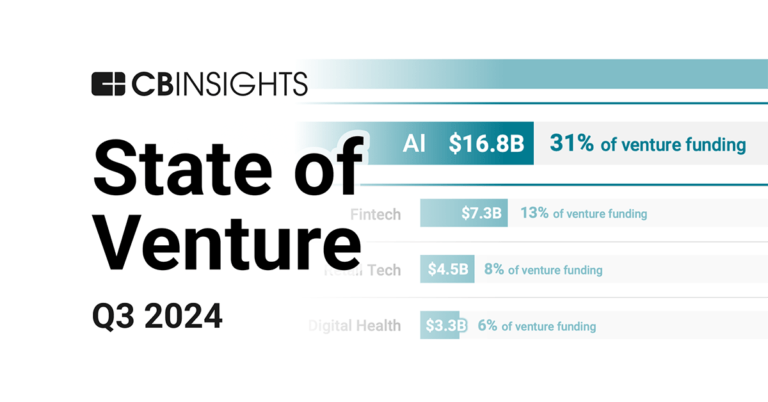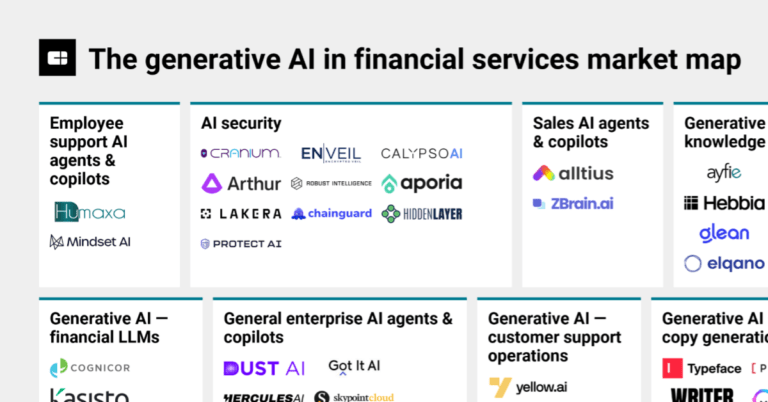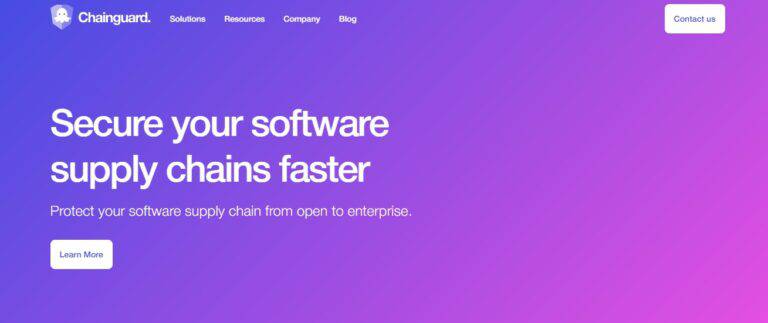
Chainguard
Founded Year
2021Stage
Series C | AliveTotal Raised
$256MValuation
$0000Last Raised
$140M | 9 mos agoMosaic Score The Mosaic Score is an algorithm that measures the overall financial health and market potential of private companies.
+38 points in the past 30 days
About Chainguard
Chainguard operates within the cybersecurity and software supply chain security sectors. The company offers hardened container images that aim to reduce vulnerabilities and integrate into DevSecOps processes. Chainguard's solutions provide tools for vulnerability remediation, compliance, and risk mitigation. It was founded in 2021 and is based in Kirkland, Washington.
Loading...
ESPs containing Chainguard
The ESP matrix leverages data and analyst insight to identify and rank leading companies in a given technology landscape.
The container & kubernetes security market focuses on providing security solutions and practices specifically designed for containerized environments and Kubernetes orchestration platforms. With the widespread adoption of containers and Kubernetes for deploying and managing applications, ensuring the security of these environments has become crucial. Container & kubernetes security solutions offer…
Chainguard named as Challenger among 15 other companies, including Microsoft, CrowdStrike, and Palo Alto Networks.
Loading...
Research containing Chainguard
Get data-driven expert analysis from the CB Insights Intelligence Unit.
CB Insights Intelligence Analysts have mentioned Chainguard in 3 CB Insights research briefs, most recently on Nov 7, 2024.

Oct 3, 2024 report
State of Venture Q3’24 ReportExpert Collections containing Chainguard
Expert Collections are analyst-curated lists that highlight the companies you need to know in the most important technology spaces.
Chainguard is included in 4 Expert Collections, including Cybersecurity.
Cybersecurity
10,544 items
These companies protect organizations from digital threats.
Unicorns- Billion Dollar Startups
1,270 items
Supply Chain & Logistics Tech
4,391 items
Companies offering technology-driven solutions that serve the supply chain & logistics space (e.g. shipping, inventory mgmt, last mile, trucking).
Artificial Intelligence
7,221 items
Latest Chainguard News
Apr 3, 2025
A secure container company listens to several top Linux maintainers on how to build the most secure Linux distro possible. Roland W. Kunz/Getty Images LONDON -- When I met up with my open-source buddy Dustin Kirkland, VP of engineering at Chainguard, at KubeCon Europe, he said he had me to thank for his company's new Linux distribution, Chainguard OS . Why? In my May 2024 story about kernel security, I'd said all distros had been doing Linux security wrong . (That was the conclusion of a CIQ study, Linux stable kernel maintainer Greg Kroah-Hartman, and top Linux developer Kees Cook.) "A light bulb went off," Kirkland told me, "and I realized, holy cow, this is the piece that I was missing, as we've built our product around hardened containers, not virtual machines, not a full distro." Earlier, the Kirkland, Wash.-based secure container company had released Wolfi, an "undistribution" with all the software you need for a container except Linux. Lately, though, Chainguard had considered building its own secure enterprise Linux. But, Kirkland said, that would take a lot of work and a dozen or so Linux kernel developers. However, using the approach I described in the story, they could build an even more secure distribution for far less work and money. How? As Kroah-Hartman explained, you should always use the latest long-term stable kernel (LTS). The key word here is "latest." It's not enough to use an LTS . You must use the most up-to-date release to be as secure as possible. Cook added, "The answer is simple, if painful: Continuously update to the latest kernel release , either major or stable." Kroah-Hartman has often said, "Any bug has the potential of being a security issue at the kernel level." Jonathan Corbet, Linux kernel developer and LWN editor-in-chief, added: "In the kernel, just about any bug, if you're clever enough, can be exploitable to compromise the system . The kernel is in a unique spot in the system ... it turns a lot of ordinary bugs into vulnerabilities." Now that Linux is in charge of issuing all its own CVEs , the latest version of the LTS kernel gets the fixes for all known bugs as soon as they become available. Thus, by tracking the LTS kernel tree and issuing a rolling Linux release immediately, you can be certain that your Chainguard OS is as secure as humanly possible. In addition, Chainguard OS uses Chainguard's automated build system, the Chainguard Factory , to eliminate unnecessary software bloat and reduce the potential attack surface. This design ensures the operating system contains fewer dependencies, lowering the likelihood of security holes. The OS is also designed with a zero-trust, immutable infrastructure . This approach enhances security by ensuring that every component is verified and trusted, minimizing the risk of supply chain attacks. Thus, when a new patch comes out, you don't patch your operating system at all. Instead, you replace it lock, stock, and barrel with a new, totally secure model. Chainguard OS is also continually verified to ensure it remains free from vulnerabilities. This ongoing verification process helps maintain a secure software development and deployment environment. For example, if new security holes are found in, say, Python but not in Linux, the entire operating system, Python, and other software programs are pulled as a single package and replaced. Chainguard OS is part of a broader strategy by Chainguard to secure the software supply chain. The company has already made significant strides with its container images and libraries, which are designed to eliminate vulnerabilities and provide a secure foundation for developers. By extending this approach to the operating system level, Chainguard empowers developers to focus on building secure software without the burden of patching legacy vulnerabilities. Why isn't everyone doing this? If you depend upon a particular version of Linux for your company, which many businesses do, you don't want the foundations of your operating system to change constantly. That's why even long out-of-date Linux distros such as CentOS still have users. They rely on TuxCare Endless Life Cycle , OpenLogic CentOS End of Life Support , or SUSE Multi-Linux Support , formerly Liberty Linux, for support. But if security is the top priority for your company's Linux workloads, you'll want to use Chainguard images , which are built on top of Chainguard OS. Chainguard OS is not available as a standalone distro; that's not Chainguard's market. However, if you ask them nicely, maybe they'll consider it. In the meantime, if you run most of your work in the cloud, check out their container images, language libraries , and virtual machines (VMs) . You'll be glad you did. Stay ahead of security news with Tech Today , delivered to your inbox every morning. Security
Chainguard Frequently Asked Questions (FAQ)
When was Chainguard founded?
Chainguard was founded in 2021.
Where is Chainguard's headquarters?
Chainguard's headquarters is located at 810 7th Street South, Kirkland.
What is Chainguard's latest funding round?
Chainguard's latest funding round is Series C.
How much did Chainguard raise?
Chainguard raised a total of $256M.
Who are the investors of Chainguard?
Investors of Chainguard include Amplify Partners, MANTIS Venture Capital, Sequoia Capital, Spark Capital, Institutional Venture Partners and 15 more.
Who are Chainguard's competitors?
Competitors of Chainguard include Legit Security and 6 more.
Loading...
Compare Chainguard to Competitors

Ox Security specializes in software supply chain security solutions. The company offers services that help manage security risks in the software development process, including automating protective actions, managing security findings from a single location, and ensuring the security and integrity of all cloud artifacts. It primarily serves the software development and cloud computing industries. It was founded in 2021 and is based in Tel Aviv, Israel.

GitGuardian specializes in secrets security and non-human identity governance within the software development lifecycle. The company provides solutions for detecting hardcoded secrets, monitoring public code repositories, and securing software supply chains. It primarily serves the security sector. The company was founded in 2017 and is based in Paris, France.

Myrror Security specializes in software supply chain protection within the cybersecurity domain. The company offers a solution that detects and prevents attacks during the development process, particularly those originating from third-party sources, to maintain product security and prevent the spread of malicious activity. It primarily serves the cybersecurity industry. Myrror Security was formerly known as BlindSpot Security. It was founded in 2022 and is based in Tel Aviv, Israel.

Mend.io focuses on application security. It provides tools to manage application risk across various domains. Its main offerings include automated dependency updates, open source security management, proprietary code security, and risk analysis for AI models. Mend.io serves sectors that require application security measures, such as software development and IT security. Mend was formerly known as WhiteSource. It was founded in 2011 and is based in Givatayim, Israel.

Aikido develops a cloud security platform. It aims to prevent security issues and resist malware attacks. It scans and monitors the open-source dependencies in the codebase for known vulnerabilities and risks and helps secure the supply chain. The company also integrates with major cloud providers to detect risks that can make cloud infrastructure more susceptible to attacks. It was founded in 2022 and is based in Ghent, Belgium.
Binarly specializes in firmware security and supply chain risk management within the cybersecurity industry. The company offers an AI-powered platform that detects and remediates known and unknown vulnerabilities in firmware and software supply chains. Binarly's services are designed to provide visibility into firmware and software vulnerabilities, identify malicious code, and offer prescriptive fixes for rapid resolution. It was founded in 2021 and is based in Santa Monica, California.
Loading...


